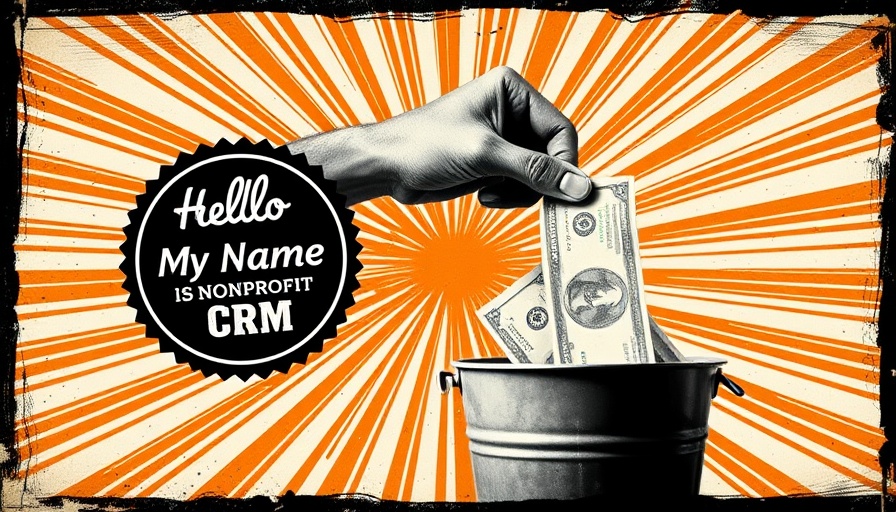
Finding the Right CRM: A Must for Nonprofits
In the non-profit sector, managing relationships is paramount. Unlike traditional businesses that aim for profit, non-profit organizations thrive on connections with donors, volunteers, and community members. This creates a unique landscape that demands efficient tools specifically designed for their challenges. In 2025, as non-profits increasingly pivot towards digital solutions, Customer Relationship Management (CRM) systems tailored for their needs become essential for fostering engagement, maintaining donor relationships, and streamlining operations.
What Makes Nonprofit CRMs Unique?
The purpose of a CRM is straightforward: to manage interactions with constituents. However, non-profit CRMs offer unique functionalities that address the specific challenges faced by these organizations. These include features such as donor management, grant tracking, volunteer coordination, and advanced reporting capabilities. Understanding these specific needs allows nonprofits to optimize engagement strategy and donor retention more effectively. For example, HubSpot stands out as a leading CRM that helps non-profits streamline administrative tasks while also facilitating personalized communication.
Top Nonprofit CRMs to Consider in 2025
As you browse through your options, here are some of the best CRM platforms tailored for non-profit organizations in 2025:
- HubSpot: Excellent for organizations looking for a comprehensive, user-friendly platform. Features include donor tracking and customizable email campaigns.
- Salesforce for Nonprofits: Known for its scalability, Salesforce offers extensive customization options and robust analytics.
- Bloomerang: Specifically designed for donor management and retention, Bloomerang helps non-profits track donor engagement with rich insights.
- Little Green Light: Ideal for smaller organizations, this CRM offers straightforward functionality for donor management with a focus on ease of use.
- NeonCRM: Known for its flexible architecture, NeonCRM suits organizations looking to integrate various aspects of their operations, from donations to membership management.
The Unique Benefits of Implementing a Nonprofit CRM
Investing in a CRM specifically tailored for non-profits can result in substantial advantages, including:
- Improved Communication: Tailored CRMs allow organizations to tailor their outreach strategies, ensuring effective communication with specific groups, whether they are donors, volunteers, or community members.
- Enhanced Data Management: Nonprofits can easily manage vital data, making reporting for grants and audits less tedious and more accurate.
- Increased Donor Retention: With tools to track donor activities and preferences, organizations can foster stronger relationships and thereby increase donor loyalty.
Making the Right Choice: How to Choose a CRM for Your Nonprofit
Selecting a CRM can feel overwhelming given the various options available. Consider these essential steps:
- Assess Your Needs: Identify features that are crucial for your organization, such as donation tracking or volunteer management.
- Budget Considerations: Determine your budget constraints and consider CRM options that offer flexible pricing structures or free trials.
- Seek User Feedback: Engage with other non-profit organizations to hear their experiences with the platforms you're considering.
A Call to Action: Choose Your CRM Wisely
In today's fundraising landscape, the right tools are critical for success. Non-profit organizations must adapt to digital solutions to remain competitive and foster lasting relationships. Choosing the right CRM is not just a technical decision; it's a strategic investment in your mission's future. Take time to evaluate options, leverage the benefits of tailored solutions, and watch your organization thrive in 2025 and beyond.
 Add Row
Add Row  Add
Add 




Write A Comment